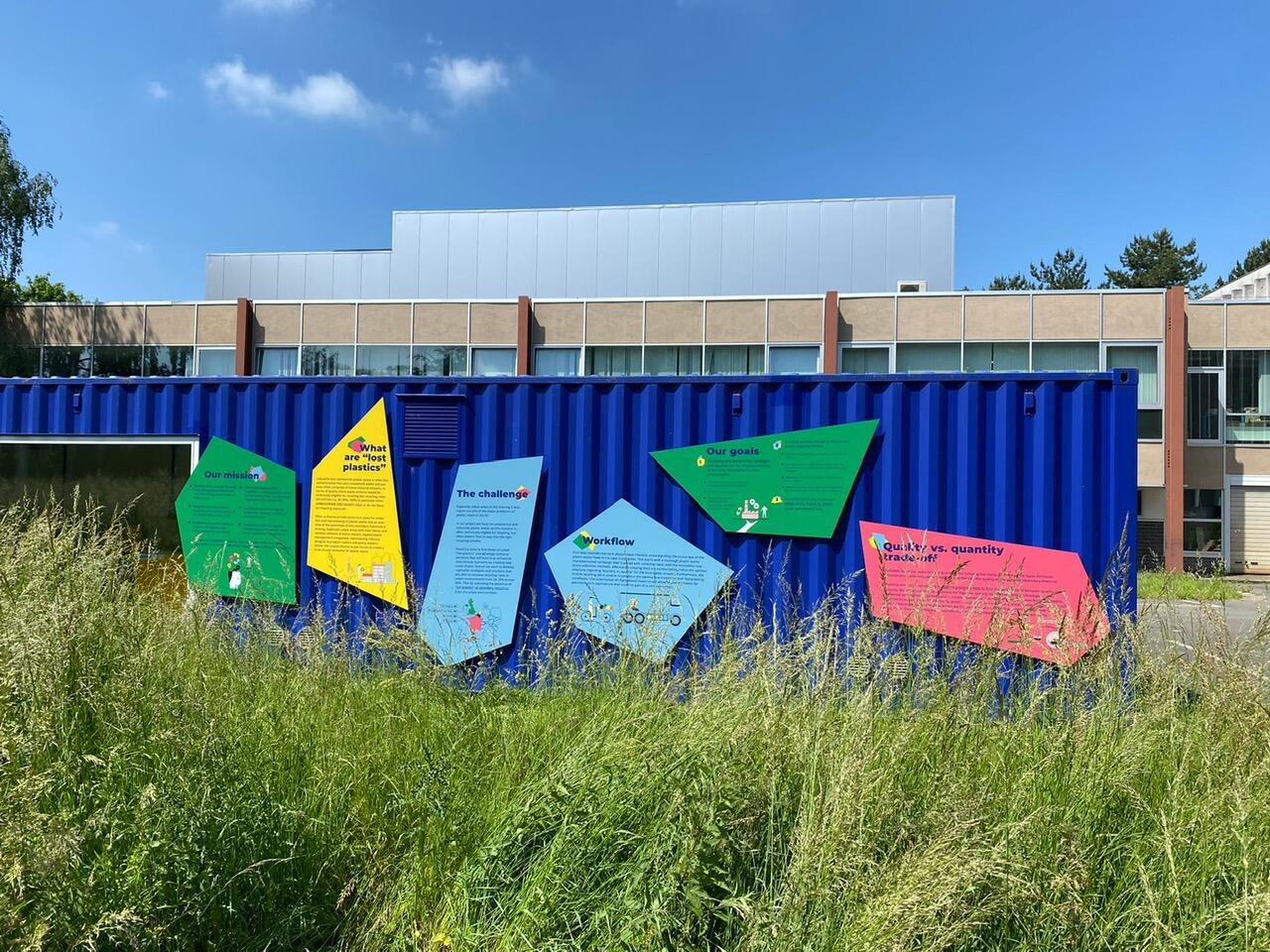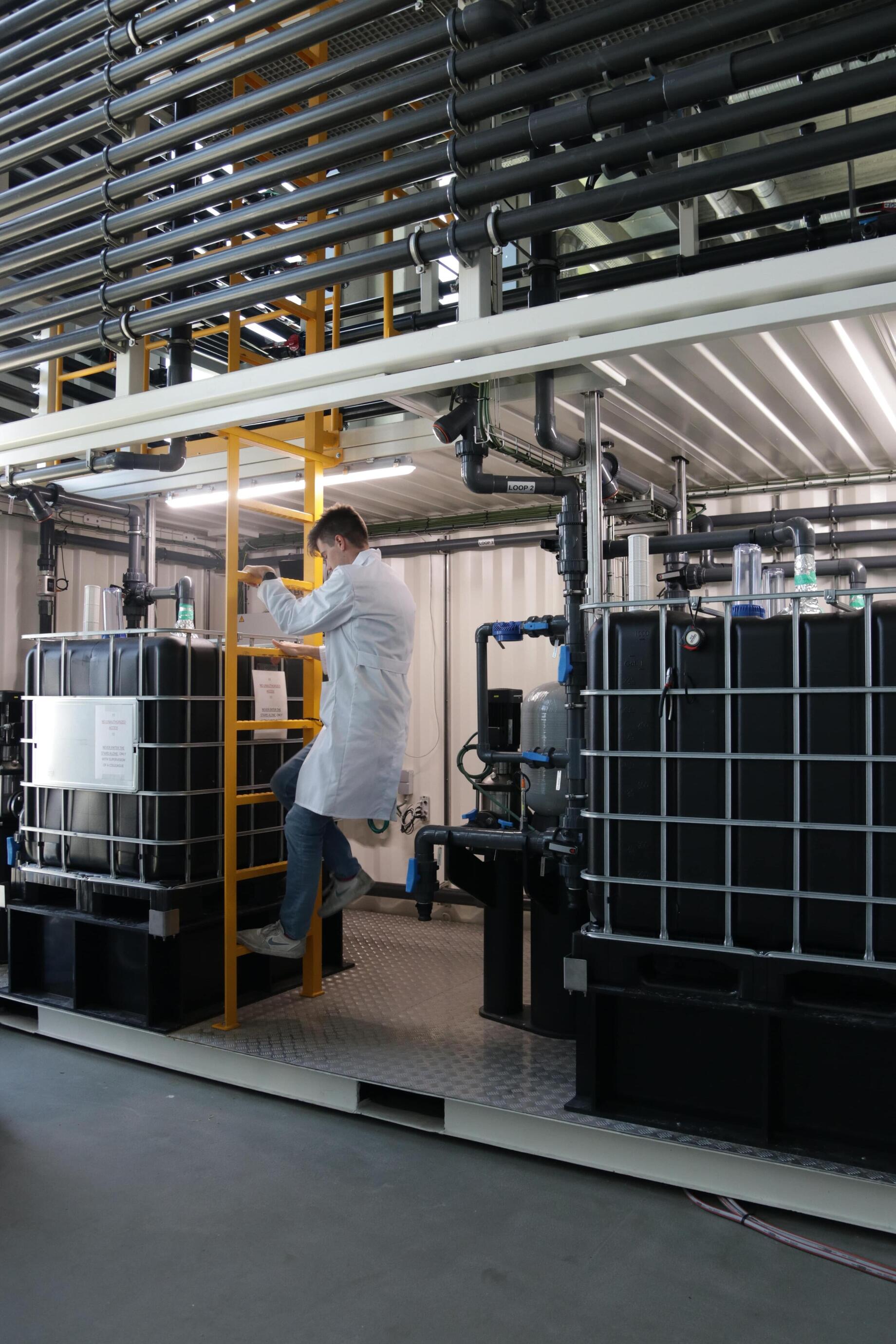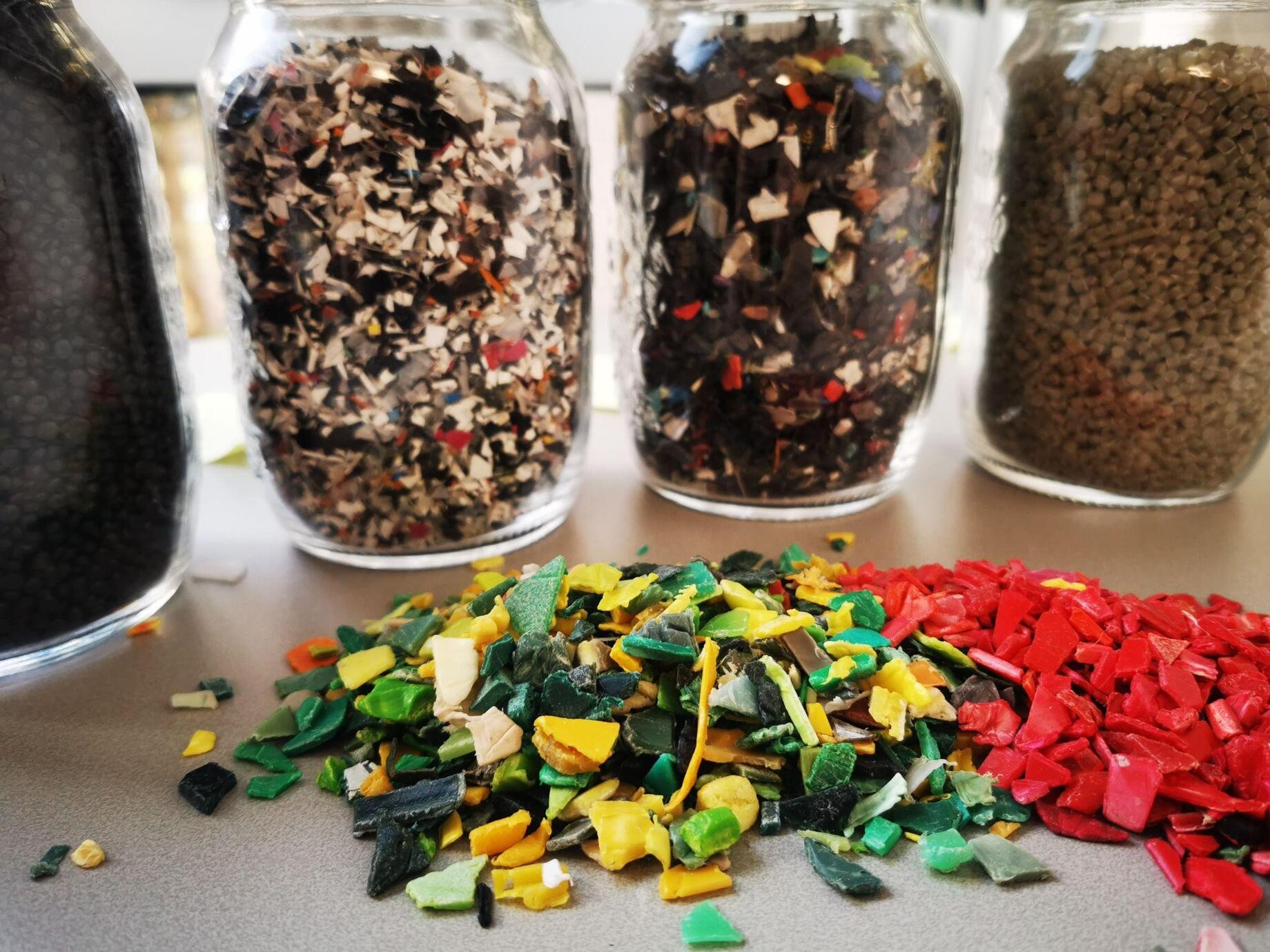A match made in plastic
The City of Ghent has worked on the Interreg-project PlastiCity these past few years.
With the Interreg PlastiCity project, The Hague, Southend on Sea, Douai and Ghent have joined forces to develop new strategies and solutions to increase the recyclability of lost plastics.
The City of Ghent has tried to connect all the actors of the circular plastic value chain. Our goal? To develop new business cases and attract new investments to our region. Thanks to intense collaborations and our focus on innovation, we have been able to achieve some things we are quite proud of. Click here to read more about their endeavours.
We spoke to Ger Kwakkel and Gerko Brouwer of The Hague, Rachel Bass of Southend on Sea, Thomas Lignereux of Douai and Sanne Habets of Ghent to hear about their experiences within this project.
What’s the importance of this interregional project?
Sanne: A couple of months ago, an article was published in The Guardian which shows that scientists found microplastics in the blood of almost 80% of people tested. That’s immense! These particles can affect our organs and cause all sorts of diseases.
Huge amounts of plastics are still dumped on a daily basis, severely damaging our environment. With this project, we want to drastically increase the recycling rate of plastic waste, from 20 to 30 percent to 50 percent.
Rachel: It was also very interesting to see the differences between the regions and I think it's important that we can learn from each other. We all have different technologies and ideas and sharing knowledge really helps the project.
-
A couple of months ago, an article was published in The Guardian which shows that scientists found microplastics in the blood of almost 80% of people tested. That’s immense!
What’s the role of the City of Ghent in this project?
Sanne: Through this European project, the City of Ghent shows its commitment to a sustainable economy. We are actively investigating how plastic industrial waste can be recovered and reused as raw material in an urban context. In this way, we are reintroducing waste (various products and semi-finished products) into the city in an innovative and useful way.
I work for the Economics Department of the City of Ghent, with the team Invest in Ghent. On the one hand, the City is in charge of the entire project, and, on the other hand, we are also in charge of a specific work package for the business cases. In this respect, we coordinate and elaborate on the development of actual cases with recycled plastic.
How can all these different partners contribute to the project?
Ger: Small companies are already recycling and big players separate their plastics in factories. But if you look at the analysis, you’ll find a gap between the waste that a company generates and the plastic that an upcycling company can use. To close that gap, we’ve created the Plastic Hub, as a kind of plastics broker. In this way, we can facilitate a bridge between the plastic waste that a company generates and, for example, the plastic that a 3D printing company needs to print with. The Plastic Hub must be a link in the chain. Moreover, there is also an educational factor. If organisations can see how their waste can be recycled locally in The Hague, for instance, they will - hopefully - feel more responsible for it.
Thomas: Indeed, the earlier we teach sustainability principles, the better. In this way, we can stimulate interest in the subject and perhaps awaken a new generation of eco-minded inventors, engineers and innovators."
Gerko: What is more, for smaller companies it’s not exactly financially interesting to sort their plastic waste and have it collected. The small entrepreneur would much rather pay taxes to have his waste incinerated, while it could actually be recycled and put to good use.
Sanne: The idea is to keep the recycling process as accessible as possible for entrepreneurs. If we can come up with products from these business cases that can be made from recycled plastic and if they are also financially viable, then the chance of success increases considerably.
-
If we can come up with products from these business cases that can be made from recycled plastic and if they are also financially viable, then the chance of success increases considerably.
This project started in 2019 and was – of course – affected by COVID-19. That’s why certain workshops couldn’t take place and there aren’t many pictures of collaborations. But what are your personal highlights of these past years?
Gerko: For me, it’s the fact that PlastiCity is increasingly becoming embedded in the urban network. People get to know it, they see the project, are enthusiastic about it and start to think along.
Rachel: I really enjoyed the project where children could design their own logo. It went much better than we anticipated! We didn't really expect to get many designs because they were busy with other things, but we’ve received a total of 134 designs from 8 different schools, so we had the difficult task of choosing 7 finalists for the public to vote. On New Year's Eve, the final design was unveiled. It felt so good to give some visibility to the project, because we had over 4000 votes, so now the community also knows about the project.
Sanne: For me, that would have to be our test collection of last winter. We selected a number of companies in Ghent and gave them 5 plastic bags. In this way, we encouraged them to start separating the types of plastic in advance. These were then collected by our business partner GRCT and are now analysed by the research centre CAPTURE.
What assets does Ghent hold or where does the challenge lie for waste collection in Ghent?
Sanne: In Ghent there are a lot of narrow streets, which require a completely different approach than, for example, in the countryside. As a test, we had the collection done by an electric van, which in terms of size is somewhere between the large rubbish trucks and smaller vans. Because we have a low emission zone in the city we have to take into account that electric is the future.
North Sea Port is also a very important partner. We’ve opened up our PlastiCity Hub there. We’re also investigating (theoretically) whether collection via the water is possible or not, but that is still a long way in the future.
What exactly is this PlastiCity Hub?
Sanne: We rent a site at North Sea Port where the mobile hub - provided by the University of Ghent - is located. We’re showing the entire recycling process in these converted containers.
During the Flemish Impact Week (last week), we’ve officially opened the hub and several workshops took place. On Tuesday 31/05 CAPTURE and UGent facilitated a session about company waste and on Thursday 02/06 Invest in Ghent organized a workshop about how local governments can invest more in a circular plastic economy. Together we looked for new opportunities and ways to work together in the future. Friday 03/06 secondary school students from technical disciplines came by. In this way, we are also encouraging them to use recycled plastic in their creations. Afterwards, this hub will also go on tour and be on display in The Hague, Southend on Sea and Douai.
-
On Thursday 02/06 Invest in Ghent organized a workshop about how local governments can invest more in a circular plastic economy. Together we looked for new opportunities and ways to work together in the future.
When, in your opinion, can we say that PlastiCity has been a success? And, above all, what are the plans for the future?
Gerko: If the result is a group of well-intentioned people who are creative and want to work together. A motivated group that can sustain itself and keeps the enthusiasm alive. Because they have seen that it’s possible, that it is financially interesting and that they see the added value of it. For me, that would be the real success of PlastiCity.
Sanne: I am already happy that we were able to bring the Impact Week to a successful conclusion (laughs)! That was a very important task because we were able to reach different target groups. Not just companies, but also other cities and municipalities, where we also gave a workshop about what they need to involve and sensitise their companies.
As a next step we want to work out the business cases as far as possible. We’ve already had stools made using a 3D printer and we will also provide the new furniture for the performers' lodge in Viernulvier (the new name of the Vooruit in Ghent).
Finally, we are fully committed to the final event of the project, which we plan to hold at the end of this year. There, we will also communicate about the final results.
However, the most important thing is to keep the momentum going after the project is finished. That is why we are making links with the right people within the right networks, so that we can present this project as one big business case and possibly expand it to other cities.
Discover Invest in Ghent
Eager to do business in Ghent and start a circular enterprise? The team Invest in Ghent is ready to help you start or scale your business in Ghent through our expert local guidance and introduction, so your business can grow even further.
Want to know more?
Curious to see what we have achieved during this project?



